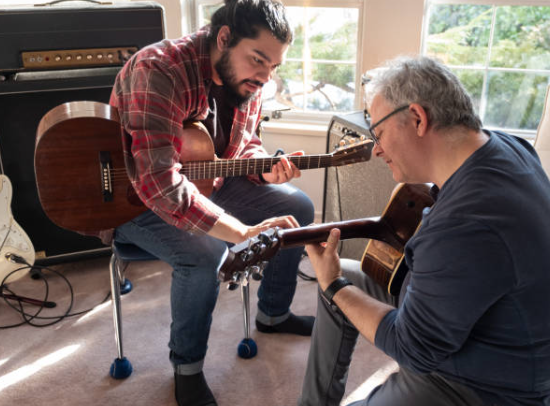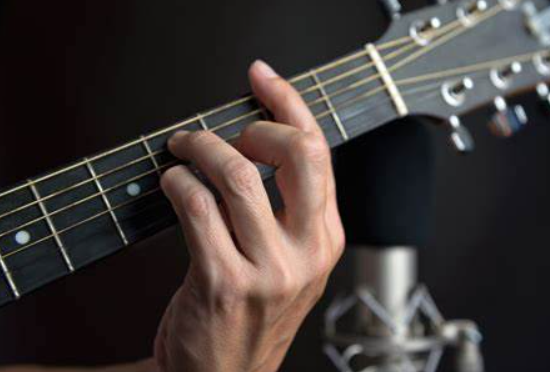OMG! MAJOR MUSIC RETAIL GIANT FAILS

Are guitar stores DEAD??
In today’s episode we’re discussing the major news that Sam Ash is shutting down all its stores. This iconic, family-owned business has been around for over a century, but it couldn’t withstand the rising tide of online sales. In the digital era, e-commerce giants offer vast selections and competitive prices, challenges that have proven too great for many traditional retailers, including those in the music industry. Join us as we explore what this means for musicians and the future of buying instruments here on…
Sam Ash is closing all its stores due to several factors, a key one being the challenge of adapting to the digital era where online sales have become dominant. Over the last decade, the shift towards online shopping has posed a significant challenge to physical retail outlets across many sectors, including musical instruments. Sam Ash, a family-owned business with a century-long history, found it increasingly difficult to compete with online retailers who often offer broader selections and possibly better prices (MusicRadar) (Fast Company).
Additionally, the company had been trying to manage its physical store operations by downsizing, as evidenced by previous closures of several locations. These efforts were part of a restructuring attempt to maintain a viable business model, but unfortunately, they weren’t sufficient to sustain the operational costs and changing consumer preferences towards online shopping (MusicRadar) (Fast Company).
The closure marks a significant change for the music retail landscape, reflecting broader trends affecting many traditional brick-and-mortar businesses.
Guitar Center’s acquisition by Bain Capital and its subsequent financial struggles illustrate a challenging journey for the music retail giant. In 2007, Bain Capital acquired Guitar Center for $2.1 billion, which included a large amount of debt—specifically, Guitar Center took on $650 million in term loans and $750 million in notes to support the buyout. This leveraged buyout significantly increased the company’s debt load, contributing to financial strain in subsequent years (International Business Times).
The timing of this acquisition coincided with a broader economic downturn, which further complicated the financial situation for Guitar Center. The retail sector, in general, was facing headwinds, and Guitar Center, with its heavy debt burden, found it challenging to navigate these conditions effectively. By 2020, the impact of the COVID-19 pandemic further exacerbated these challenges, leading Guitar Center to file for Chapter 11 bankruptcy as a strategic move to restructure its debt and continue operations (CDM Create Digital Music).
The bankruptcy process allowed Guitar Center to reduce its debt and receive new investments, which helped stabilize the company financially for a time. However, the underlying issues of a high debt burden and a challenging retail environment remained significant hurdles (CDM Create Digital Music).
Giants in the industry
- Sweetwater – Based in Fort Wayne, Indiana, Sweetwater has grown substantially, known for its high level of customer service and extensive product offerings. It’s become a major destination for purchasing musical instruments and pro audio equipment.
- American Musical Supply (AMS) – Located in Oakland, New Jersey, AMS is known for a wide array of music gear and competitive pricing, making it a strong competitor in the music retail space.
- Full Compass Systems, Ltd. – This company, based in Madison, Wisconsin, offers a comprehensive range of audio and musical instruments, servicing both the professional and hobbyist markets.
- B&H Photo & Video – Although primarily known for photo and video equipment, B&H also offers a significant selection of professional audio gear and musical instruments.
- Chuck Levin’s Washington Music Center – Known for its personalized service and extensive inventory, Chuck Levin’s has been a staple in the music industry since 1958, based in Washington, D.C.
- J.W. Pepper – Specializing in sheet music rather than instruments, J.W. Pepper is a crucial resource for bands, choirs, orchestras, and solo musicians.
- Steinway Hall Retail – Focused on high-quality pianos, Steinway Hall Retail is renowned for its superior pianos and has a significant presence in the music retail market.
- Alto Music – Known for a broad selection of instruments and recording equipment, Alto Music has established itself as a major player, especially in New York.
Click here for the full episode: https://youtu.be/Ni5-oKbmxes
In 2020, the global musical instruments market was valued at approximately $9.82 billion. This market encompasses a wide range of instruments, including stringed, percussion, keyboard, brass, and woodwind instruments. The stringed instruments segment held the largest market share, due in part to the popularity of guitars. Sales of musical instruments were influenced by the growth in online sales channels and an increased interest in music education and live performances (Grand View Research) (Allied Market Research) (Research&Markets) (GlobeNewswire) (GlobeNewswire).
The exact number of individual musical instruments sold is more challenging to quantify as the statistics often aggregate into total market value rather than unit sales. However, the information suggests a robust and growing market driven by a mix of traditional and electronic musical instruments.
In 2020, the global market for DJ equipment was estimated at approximately $499.1 million, and it is projected to grow to $780.6 million by 2027, reflecting a compound annual growth rate (CAGR) of 6.6% from 2021 to 2027. This growth is driven by factors such as the rising popularity of live music events and advancements in DJ technology which facilitate a richer sound experience and ease of use【26†source】.
The professional audio equipment market, which includes equipment used for recording and DJing, was valued at $17.5 billion in 2021, and it’s expected to reach $32.2 billion by 2031, growing at a CAGR of 6.3%. This sector is propelled by the increased spending on global festivals, concerts, and the integration of high-quality audio systems in various settings【25†source】.
Despite these positive trends, the DJ equipment segment faced challenges due to the COVID-19 pandemic, which led to cancellations of live events and disruptions in supply chains, affecting sales and market dynamics significantly in 2020【24†source】. However, the sector has seen a gradual recovery with the easing of lockdown measures and the increasing integration of online sales platforms and advanced technologies like wireless DJ equipment【24†source】【23†source】.
These insights suggest a recovering yet growing market for DJ and professional recording equipment, underpinned by technological advancements and a robust online retail sector.
School of Rock has recently partnered with Donner, a company known for its musical instruments. This collaboration is part of School of Rock’s GearSelect program, which aims to enhance the learning experience for young musicians by providing them with high-quality musical instruments and gear (MMR Magazine).
Welcome to today’s episode where we delve into the seismic shifts in the retail landscape for musical instruments. Today, we’re looking at the major news that Sam Ash is shutting down all its stores, a striking symbol of the challenges faced by brick-and-mortar music shops. Not alone in this struggle, Guitar Center and many other stores also find themselves battling to survive against the dominance of online sales. In an era where digital storefronts offer vast selections and competitive prices, what is the future for traditional music retail? How will musicians adapt to these changes? What store can we go to try guitars so we can THEN buy them online (chuckle) Stay tuned as we explore these questions and unveil some intriguing insights into the evolving world of music shopping.






